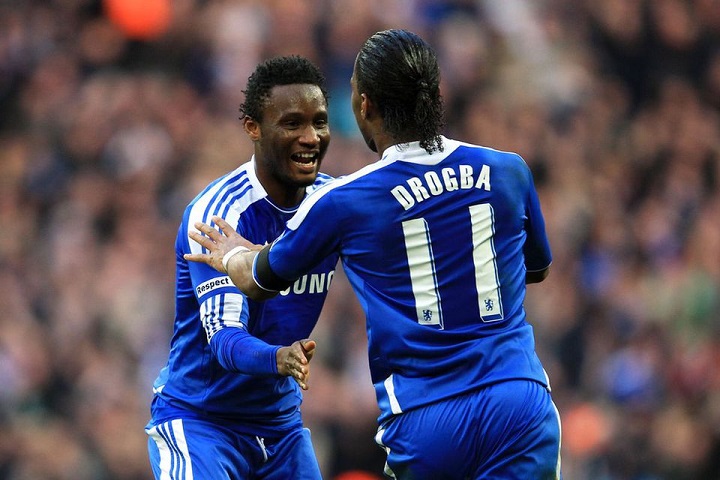
In a revealing interview, ex-Chelsea star John Mikel Obi has opened up about the significant sway senior players, particularly Didier Drogba, held over managerial decisions during Luiz Felipe Scolari’s time at Stamford Bridge. Mikel’s insights shed light on the internal dynamics that contributed to Scolari’s premature departure.
Speaking to Stadium Astro, Mikel Obi recounted the atmosphere within the Chelsea camp during Scolari’s reign in 2008. The Brazilian manager’s tenure began with optimism, but tensions soon arose, primarily due to his tactical choices and team selections.
A central point of contention was Scolari’s decision to favor French striker Nicolas Anelka over Ivorian talisman Didier Drogba. This move did not sit well with Drogba, who had been a pivotal figure in Chelsea’s attack. Mikel described the situation: “When you have such a big ego, a big player, the number one guy, and all of a sudden, he’s not playing. He’s walking around the training ground, sulking, not happy, walking around grumpy; it wraps around everybody.”
Read also: Aiming for Glory: Nigeria’s Table Tennis Icon Eyes Another African Crown
The Nigerian midfielder emphasized that Drogba’s visible dissatisfaction had a ripple effect on the entire squad, fostering an environment of unrest. This discontent wasn’t isolated to Drogba; other senior players also began to question Scolari’s methods and decisions. Mikel highlighted that the collective influence of these key figures was so profound that it could determine the fate of the manager.
Reflecting on the power dynamics, Mikel noted that the environment at Chelsea during that period was akin to a “mafia,” where senior players wielded significant control over club affairs. This influence extended beyond the pitch, affecting managerial tenures and club policies.
Scolari’s stint, which commenced with high expectations, was abruptly terminated in February 2009, just seven months after his appointment. The official reason cited was the team’s “deteriorating results and performances,” but Mikel’s revelations suggest that player power played a pivotal role in the decision.
This episode wasn’t an isolated incident. Under owner Roman Abramovich, Chelsea became known for its frequent managerial changes, with several coaches facing dismissal due to a combination of unsatisfactory results and internal pressures. The culture of empowering senior players, while fostering a winning mentality, also led to challenges in maintaining managerial authority.
Mikel’s account provides a nuanced perspective on the intricate relationships between players and management at elite football clubs. It underscores the delicate balance coaches must maintain to manage star-studded squads effectively. While player input is invaluable, excessive influence can undermine managerial strategies and club cohesion.
In retrospect, the “mafia-like” environment at Chelsea during that era contributed to both the club’s successes and its internal challenges. Understanding these dynamics offers insights into the complexities of managing top-tier football teams, where egos, expectations, and performances are in constant interplay.
